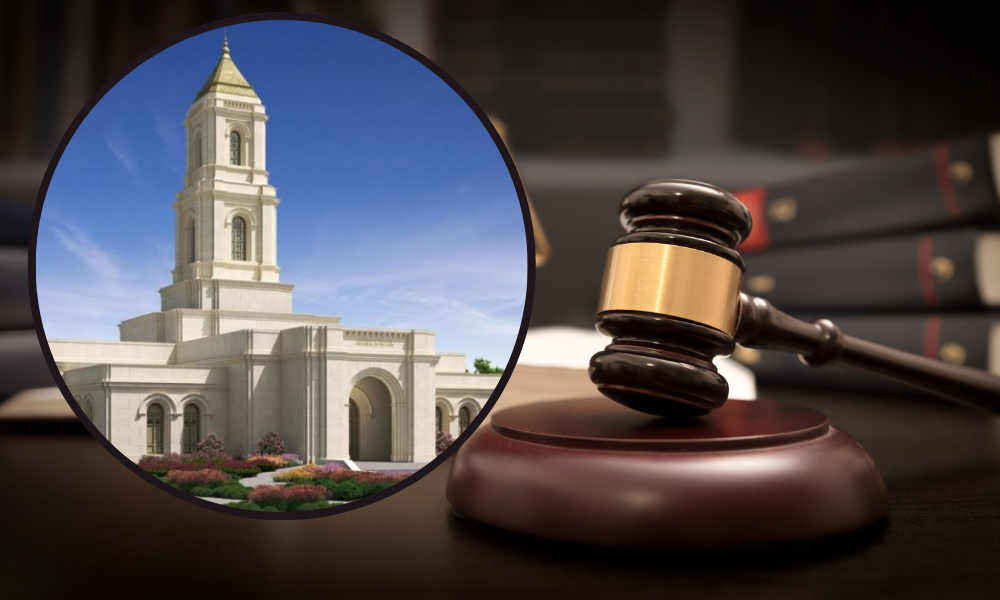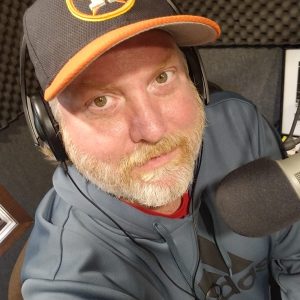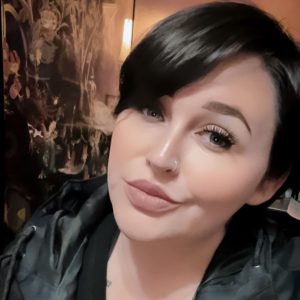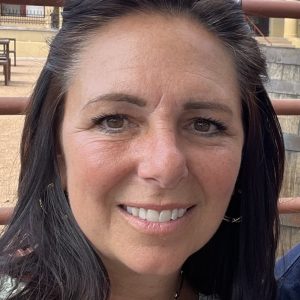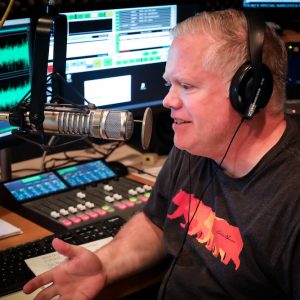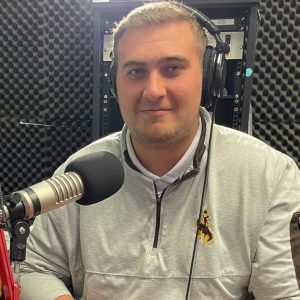A motion has been filed with the Park County District Court by the Preserve Our Cody Neighborhoods Group requesting to “intervene” in the Church of Jesus Christ of Latter-day Saints’ lawsuit against the City of Cody’s Planning, Zoning, and Adjustment Board.
The group, which opposes the construction of the proposed temple in a residential Cody neighborhood, filed the motion to ensure that their interests will be representing during the court proceedings.
A motion to intervene is typically filed by a third party who is not named in the initial motion, but has a personal interest and concern in the outcome of the suit.
On July 24, the group’s attorney, Debra Wendtland of Sheridan, filed the motion stating, “This case is an unlawful appeal … that is unsupported by required findings of fact and conclusions of law.”
According to Wendtland’s motion, the Preserve Our Cody Neighborhoods Group is “legally entitled to intervene in this unlawful appeal to protect their substantial, immediate and pecuniary interests that, but for their admission, such interests will be unrepresented in this matter.”
The Preserve Our Cody Neighborhoods Group has the right to intervene in the lawsuit because they are property owners that either live near or next to the proposed site of the temple. The group has “actively opposed” the temple application because they believe it will cause “specific harms to them”, according to the filing.
The specific harms outlined in the document include loss of view shed, increased traffic, increased light, increased density, storm water runoff, along with multiple violations of the Cody City Municipal Code, according to the motion.
The document further states the in the lawsuit filed by the LDS Church against the City of Cody’s Planning, Zoning, and Adjustment Board was “erroneously attempting to appeal” a P&Z decision “that is not final and therefore not yet appealable.”
The Church filed a motion for judicial review with the Park County District Court against the city’s Planning, Zoning, and Adjustment Board on a voting technicality from the Special Meeting that was held June 15.
During the meeting, 3 out of 5 of the board members voted in favor of the Site Plan, with 1 opposed and 1 abstaining from voting. Board Chairman Carson Rowley failed the motion with the understanding that in order for a motion to pass, it must be approved by majority of the Board, but only 5 of the 7 board members were in attendance.
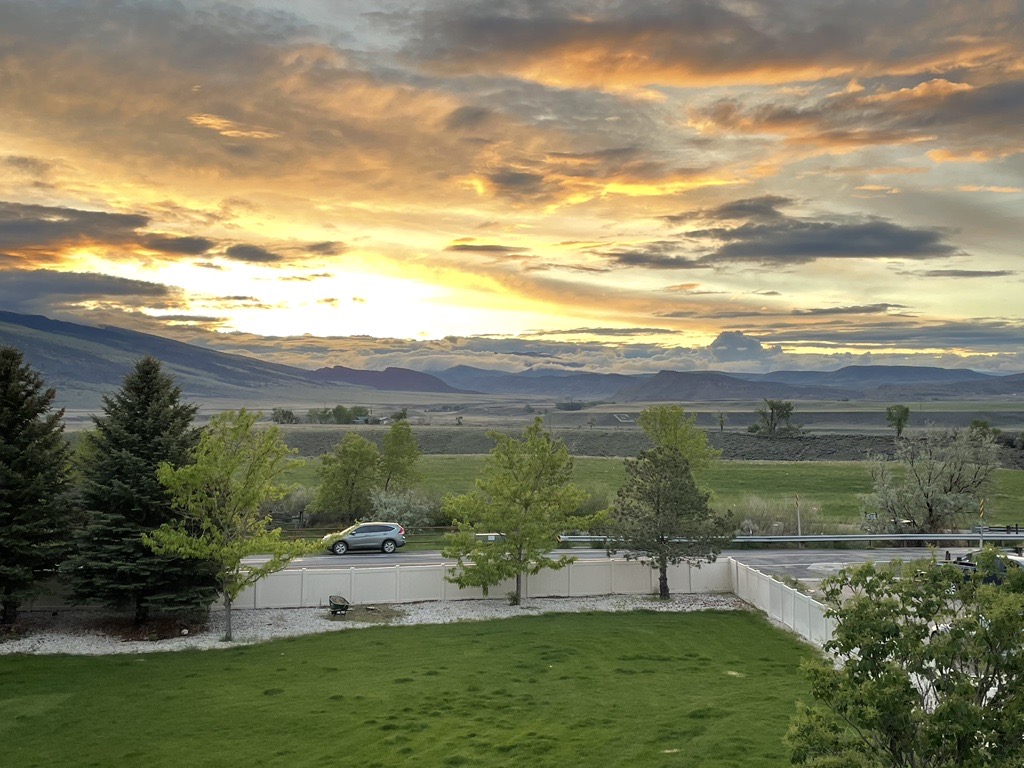
4.9 acres on Skyline Drive for proposed LDS temple site. (Photo courtesy of Mac Watson).
The Church filed the lawsuit requesting the court to review, and potentially overturn the technicality, which would them allow them the approval need to move forward with the proposed temple project at proposed address of 555 Temple Lane.
At a Special Meeting held July 25, the Board elected to uphold this determination.
Wendtland said in the motion filed “only final decisions of the [Planning and Zoning Board] are appealable to the Park County District Court.
“Even if [the church’s] argument is correct that a vote in favor of the temple site plan required only a majority of the [P&Z] members present, such determination is still not a final, appealable decision,” the motion stated.
“By law, the site plan cannot stand alone to formally and finally authorize construction of the proposed temple. More must be done.”
The motion filed by the Preserve Our Cody Neighborhoods Group also states that the parties listed on the lawsuit – the LDS Church attorney Kendal Hoopes from Sheridan, City Attorney Scott Kolpitcke, and the Planning, Zoning and Adjustment Board – will not “adequately” represent them and their interests.
According to the motion, not allowing the group to participate in the lawsuit could “impair or impede” their “ability to protect their respective interests.”
“As adjoining landowners and landowners that live near the proposed temple site…. the movants are proper parties to intervene as of right,” read the filing.
Preserve Our Cody Neighborhoods Group’s attorney has requested that the hearing be held in District Court, so a ruling on the motion can be made effectively. A hearing has not been scheduled yet, but the case will be heard by Judge John R. Perry, a retired judge from Buffalo.
According to court documents, the case was originally assigned to Park County District Court Judge Bill Simpson, but because of an order on July 21 from Chief Justice Kate M. Fox of the Wyoming Supreme Court, the case has been assigned to Perry.
After the lawsuit was filed by the LDS Church, they released a statement answering some questions and addressing community concerns.
The Preserve Our Cody Neighborhoods Group has also released a statement in response to the Church, and the motion to intervene.
“Our mantra has ALWAYS been to ‘Relocate the Temple’ to a more appropriate site,” reads the document provided by Preserve Our Cody Neighborhood. “Any reports to the contrary are simply just false.”
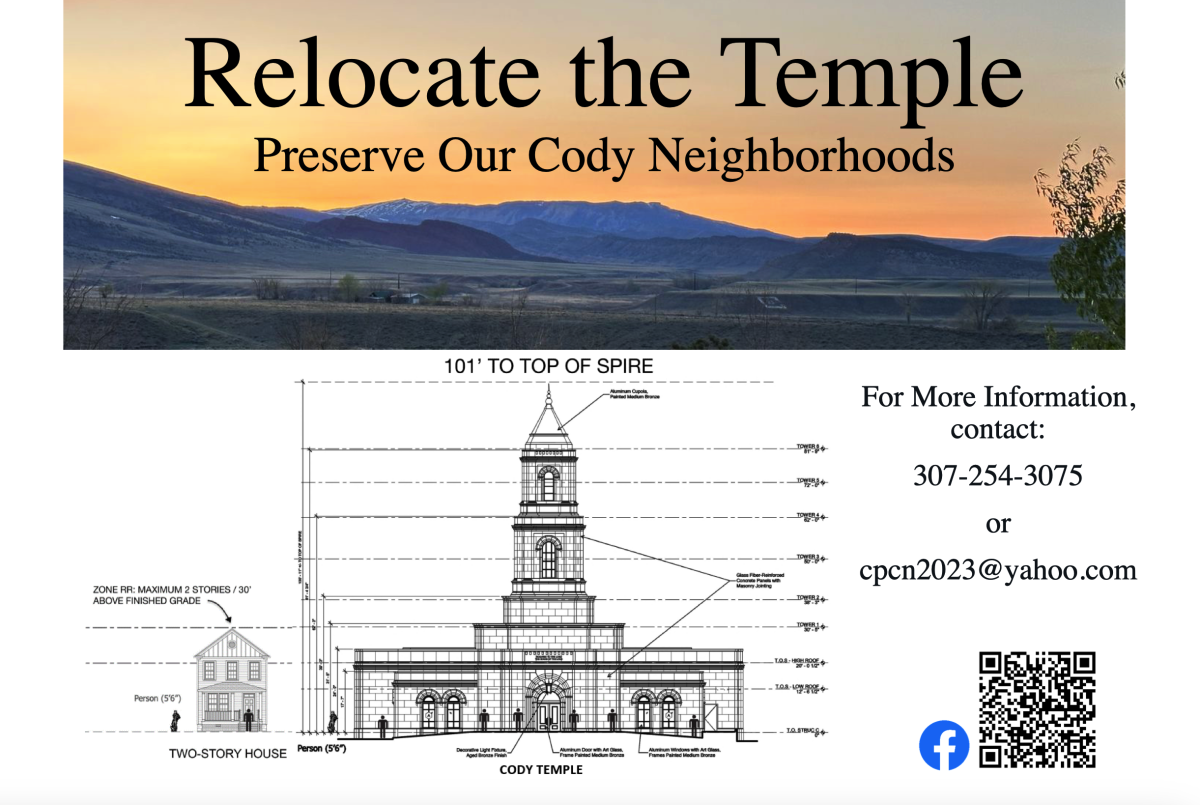
Preserve Our Cody Neighborhoods “Relocate the Temple” Yard Sign
At the most recent Special Meeting, held on July 25, board members discussed if denying the Site Plan would be a violation of The Religious Land Use and Institutionalized Persons Act of 2000 known as RLUIPA. The Group’s statement said, “The LDS’s RLUIPA agreement is not valid for the Cody temple.”
According to the document, “The burden is on the applicant to prove that, without the tower, they are robbed of their ability to get their religious message out.”
“More than adequate case law exists across multiple federal circuit courts, including Tenth Federal Circuit Court for which Wyoming is apart of, each holding that enforcement of neutral zoning ordinances and regulations do not violate RLUIPA or any freedom of religion,” states Preserve Our Cody Neighborhoods.
“It’s not the [Planning, Zoning and Adjustment Board]’s job to assist or arrive at compromises, essentially negotiating among themselves,” said the Group. “[Planning, Zoning and Adjustment Board] should be ruling on its, that are only presented to them.
The City of Cody’s Planning, Zoning and Adjustment Board has not announced yet if or when their next Special Meeting to discuss the Site Plan yet.
For questions about the proposed temple or upcoming Board meetings, please contact the City of Cody Office.
Here is the full statement from the Preserve Our Cody Neighborhoods group:
“Preserve Our Cody Neighborhoods” – Statement
“Preserve Our Cody Neighborhoods” group is opposed to the proposed Cody temple location on Skyline Drive, a 2-lane dead-end road in SW Cody. Our mantra has ALWAYS been to “Relocate the Temple” to a more appropriate site. We have publicly expressed support for a temple in Cody, through multiple submissions to the city of Cody, public interviews and conversations/emails between Cody Mayor Matt Hall, Planning and Zoning Board members, city administrator, and city council members. We have expressed support of a temple in Cody to LDS Project Manager Matt Burke during a July 11th meeting, provided the site was appropriately located and adhered to the Cody Master Plan and city zoning ordinances. Any reports to the contrary are simply just false and inaccurate. (e.g. Powell Tribune 7/25/23 article quoting Jimmie Edwards: “The opposition only seems to offer one option, no temple in Cody.”)
A Development Agreement (DA) was suggested by the applicant during a June 27th PZB hearing. We immediately requested seats at that DA negotiation. We heard during a July 10th meeting with the mayor and two city council members that this DA was dead. However, we just learned during the July 25th public hearing that discussions are indeed being held between the city and LDS. We will again request admission into these negotiations, and if not allowed, an explanation for excluding us. We feel our overwhelming 74% majority of Cody citizens’ petition signers opposing this Skyline temple site (895 petition signers oppose vs. only 307 favor) should have voices at this DA table.
The LDS statement made this recent statement: “We are hopeful we can find a mutually agreeable solution for all of Cody, and avoid the division being raised by opponents to the temple.” This statement is a misleading deflection from the real issue; this Skyline temple site is not appropriate for the many reasons stated in our many temple-related written submissions and public statements. The LDS, like every other applicant and all historical Cody church applicants, need to follow Cody’s zoning rules and Cody Master Plan (CMP), which does have Wyoming statutory and Cody ordinance authority; it is the law! The LDS appear to be seeking special treatment. Exceptions to zoning and CMP would not be granted to other organizations since both zoning and CMP exist for a reason. The LDS has failed to demonstrate strong reasons for exceptions. We are reminded of a comment coming from the Director of Media Relations Doug Anderson in a June 6th Cody Enterprise statement: “Church would abide by any decisions made by the planning and zoning board.” The recent LDS lawsuit makes a very different statement.
Objections to the proposed Skyline temple tower and site plan are not a constitutional violation or violation of ‘The Religious Land Use and Institutionalized Persons Act of 2000’ (RLUIPA). The burden is on the applicant to prove that, without the tower, they are robbed of their ability to get their religious message out. No church has a constitutional right to be free from reasonable zoning regulations nor does a church have a constitutional right to build its house of worship where it pleases, per established Wyoming case law. Cody’s zoning ordinances are neutral – they apply to everyone. More than adequate case law exists across multiple federal circuit courts, including Tenth Federal Circuit Court of which Wyoming is part, each holding that enforcement of neutral zoning ordinances and regulations do not violate RLUIPA or any freedom of religion. The LDS’s RLUIPA argument is not valid for this Cody temple.
We encourage the Planning and Zoning Board (PZB) to place the burden on the applicant to provide compelling, strong evidence for the board to rule upon rather than announcing how much the Board members want to assist the applicant. It’s not the PZB’s responsibility to assist or arrive at compromises, essentially negotiating among themselves. PZB should be ruling on only items that are presented to them. This very “burden of proof is on the applicant” and “ruling on items” statements were made by multiple PZB members at the July 25th public hearing.


